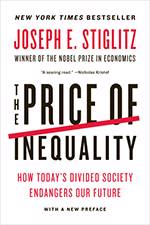OnPoint Subscriber Exclusive

Martín Guzmán
Says More…
This week in Say More, PS talks with Martín Guzmán, Argentina’s Minister of Economy.
Project Syndicate: Argentina’s successful sovereign-debt restructuring amid the COVID-19 crisis was a remarkable achievement. In your forthcoming commentary for Project Syndicate’s annual Year Ahead magazine, you share lessons from it. For example, to complement bond contracts’ collective-action clauses, which became a market standard in 2014, we must improve the international architecture for sovereign-debt restructuring – a task, you note, that the G20 has taken on in the context of the pandemic. Which changes are most urgent?
Martín Guzmán: Over the last four decades, sovereign-debt restructurings have often been too little, too late: the process is delayed, and when it eventually takes place, the debt relief provided is often insufficient to restore debt sustainability and enable economic recovery. In fact, over the same period, more than half of sovereign-debt restructurings with private creditors have been followed by another restructuring or a default within five years.
Argentina’s debt restructuring amid the COVID-19 pandemic was unusual, but so was the country’s capacity to balance the power dynamics that a debt negotiation entails. Other debt-distressed countries will not be operating under the same conditions. It is thus vital to reduce the power imbalances between sovereign debtors and private creditors, by improving multinational frameworks for debt restructuring.
Guzmán recommends
We ask all our Say More contributors to tell our readers about a few books that have impressed them recently. Here are Guzmán's picks:
-

Notes from the Underground
by Fyodor Dostoyevsky
The first part of this book, which left its mark on me almost two decades ago, is a philosophical essay that inspires deep reflection about the meaning of the actions, feelings, and motivations that shape our lives, as well as the concept of rationality. One could argue that the book explores an approach to belief-formation that resembles what economists call “rational expectations.”
-

Sonora
by Hannah Lillith Assadi
Set in Arizona and New York, Assadi’s first novel shares life stories that may be common to many, and powerfully portrays the universal human quest to “be part” of something. Distilled into one line, the novel is about “experimenting” with life.
-

The Price of Inequality: How Today’s Divided Society Endangers Our Future
by Joseph Stiglitz
Published in 2012, this book may resonate even more today than it did eight years ago. With impressive lucidity, Joe deciphers the role of power in our world. Specifically, he shows how economic inequalities deepen power imbalances that in turn reinforce economic and social inequality, such as through the rules some powerful humans create for the functioning of market economies. This is largely an ethical problem, and it carries a high price: wider power imbalances mean worse economic performance and less stable societies.
From the PS Archive
From 2018
In “Argentina’s Unseen Fragility,” Guzmán predicts that the government’s excessive dependence on external debt to power growth will lead to disaster. Read more.
From 2017
In “From Bad to Worse for Puerto Rico,” Guzmán and Stiglitz pillory a federally imposed fiscal plan that openly assumes a Venezuela-style depression. Read more.
Around the web
In this Centre for International Governance Innovation paper, Guzmán identifies the building blocks of an effective sovereign debt sustainability analysis. Read the paper.
In a Council on Foreign Relations interview, Guzmán discusses the state of Argentina's economy, how the pandemic has affected it, and the debt challenges it faces. Watch the video.